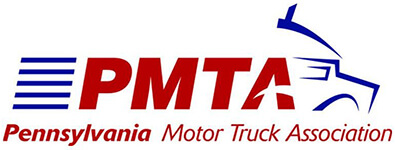ATRI 2025: Comparing National and Pennsylvania Trucking Priorities
Each year, the American Transportation Research Institute (ATRI) surveys thousands of motor carriers and drivers to identify the most pressing issues facing the trucking industry. The newly released 2025 Top Industry Issues Report confirms what many in Pennsylvania’s trucking community already feel: economic uncertainty, rising insurance costs, and legal pressures continue to dominate the landscape. But it also reveals where Pennsylvania’s priorities align—and where they diverge—from national trends.
National Perspective: A Shifting Industry
Nationally, ATRI’s top ten list begins with a familiar concern. For the third consecutive year, the economy ranked as the number-one issue across the industry. Prolonged freight softness, higher interest rates, and lingering tariff impacts have left many fleets struggling to maintain margins. Carriers and owner-operators alike face stubbornly high operating costs while rates remain flat.
The second and third national concerns—lawsuit abuse reform and insurance cost and availability—reflect growing anxiety over litigation risk and liability premiums. Nuclear verdicts and third-party litigation funding have driven up insurance costs, squeezing fleets that already face financial pressure. These issues are closely tied to each other and together represent one of the most significant cost drivers in trucking today.
Truck parking remains a major challenge nationwide, ranking fourth, followed by driver compensation. While the parking shortage is a persistent safety and efficiency problem, driver pay and benefits continue to play a key role in retention and recruitment. Rounding out the national list are Compliance, Safety, Accountability (CSA), English-language proficiency, diesel emission regulations, driver training standards, and artificial intelligence in trucking—the last a new entry this year as fleets begin to assess both the promise and the disruption of AI-driven logistics tools.
Pennsylvania Perspective: Practical Pressures Take Priority
In Pennsylvania, the top issues mirror the national list in some areas but diverge in others. The economy again holds the top spot, underscoring the local impact of rising operating expenses and reduced freight demand.
Insurance cost and availability came in second on the Pennsylvania list, with a strong call for incentives to reward fleets that adopt safety technologies. Respondents also want more public education on how lawsuit abuse contributes to higher consumer prices and insurance premiums. Relatedly, lawsuit abuse reform ranked third in Pennsylvania, as carriers push for damage caps in crash litigation and transparency in third-party litigation funding.
The fourth-ranked issue, diesel emissions regulations, reflects Pennsylvania fleets’ concern over the cost of compliance with evolving state and federal environmental mandates. Carriers are asking for a clearer understanding of the true financial impact of these rules.
Truck parking, ranked fifth, continues to frustrate Pennsylvania drivers. Respondents urged state and local governments to remove barriers that prevent new parking construction and to support PennDOT’s efforts to secure federal funding for expansion projects.
Rounding out Pennsylvania’s top ten are driver retention, driver distraction, driver shortage, CSA, and detention or delay at customer facilities. Taken together, these highlight the day-to-day realities of running a fleet: keeping good drivers, ensuring fair treatment at docks, and navigating uneven enforcement across jurisdictions. Pennsylvania respondents emphasized a desire for more research into the causes of turnover, better benefits and retirement options for drivers, and stronger penalties for distracted motorists who cause truck-involved crashes.
Comparing the Two: National vs. Pennsylvania
While both lists place the economy at the top, they diverge in several meaningful ways. Pennsylvania fleets are focused on operational and regulatory pressures, while the national list reflects growing attention to emerging workforce and technology issues.
For example, diesel emissions regulations appears higher on the state list than the national list, showing that state fleets in the Commonwealth are still grappling with immediate effects and uncertainty related to environmental compliance. Driver retention and driver shortage appear on Pennsylvania's list, but not on the national list this year, likely indicating that Pennsylvania's fleets are having a harder time finding qualified candidates to fill driver jobs than their peers in other states. Driver distraction also appears in Pennsylvania’s top ten but not nationally, indicating a higher degree of concern about safety on the roads and enforcement in Pennsylvania. On the other hand, national respondents included AI in trucking, English-language proficiency, and driver training standards—issues that speak to the industry’s longer-term evolution.
Both lists, however, highlight the same enduring challenges: the need for tort reform, affordable insurance, and expanded truck parking. These overlapping concerns reinforce the urgency of PMTA’s advocacy efforts at both the state and federal levels.
What It Means for Pennsylvania Trucking
The 2025 ATRI findings make clear that Pennsylvania’s trucking industry is dealing with a combination of economic headwinds and structural challenges that demand practical, near-term solutions. PMTA will continue to lead on key priorities like lawsuit abuse reform, diesel emissions certainty, and truck parking expansion—all while staying engaged on emerging national topics such as workforce development, safety, and technology adaptation.
As always, PMTA’s goal is to ensure that the concerns of Pennsylvania’s trucking community are heard—in Harrisburg, in Washington, and wherever policy decisions affect the men and women who keep our economy moving.
ATRI's 2025 Critical Issues in Trucking - National
1. Economy
2. Lawsuit Abuse Reform
3. Insurance Cost/Availability
4. Truck Parking
5. Driver Compensation
6. Compliance, Safety, Accountability (CSA)
7. English Language Proficiency for Drivers
8. Diesel Emissions Regulations
9. Driver Training Standards
10. Artificial Intelligence in Trucking
ATRI's 2025 Critical Issues in Trucking - Pennsylvania
1. Economy
2. Insurance Cost/Availability
3. Lawsuit Abuse Reform
4. Diesel Emissions Regulations
5. Truck Parking
6. Driver Retention
7. Driver Distraction
8. Driver Shortage
9. Compliance, Safety, Accountability (CSA)
10. Detention/Delay at Customer Facilities
